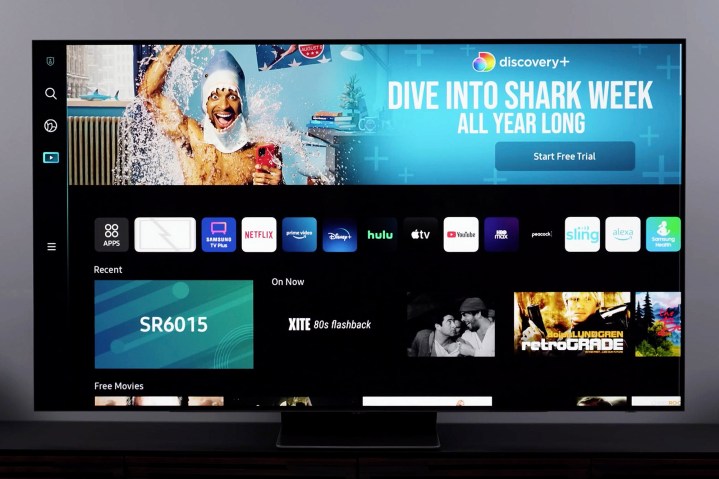Samsung today announced that it’s going to license its implementation of Tizen OS — which was itself born from the Linux Foundation in 2012 — to a number of television manufacturers starting this year. That’s hardly an aberration, of course. Roku and Amazon Fire TV each license their operating systems to various manufacturers (and Amazon just started making its own branded TVs in the Omni series), and LG’s webOS has gotten into the game, too. You also can find Google TV on a number of sets.
But don’t look for the Tizen OS on any familiar TVs in the United States anytime soon. The first brands to get Tizen are Akai, Bauhn, and Linsar — all found in Australia — and are available now. Other TVs from the likes of RCA, Vispera, and Axen will hit Italy, New Zealand, Spain, Turkey, and the United Kingdom later this year.
Samsung first announced that Tizen OS would be licensed at the 2021 Samsung Developer Conference.

The new sets will be able to take advantage of Samsung TV Plus, which is Samsung’s version of free and ad-supported streaming TV (a la Tubi or Freevee in the U.S.), as well as the Universal Guide and Bixby, which is Samsung’s voice assistant.
“2022 has been a memorable year for Tizen OS as we celebrate its 10th anniversary and the very first Tizen-powered smart TVs available from other brands,” Yongjae Kim, Executive Vice President of Visual Display Business at Samsung Electronics, said in a press release. “Starting with these new Tizen-powered smart TVs, we will continue to expand the licensing program and introduce Tizen OS and its ecosystem to more products and brands around the world.”
Tizen OS also has made an appearance on other Samsung products — namely as an Android alternative on phones and watches. But it never really took off, and instead has served as Samsung’s smart TV operating system.
Still no word on if it will ever hit any other manufacturers in the United States, but that field already is pretty crowded among sets running software from Roku, Amazon Fire TV, and Google TV.



